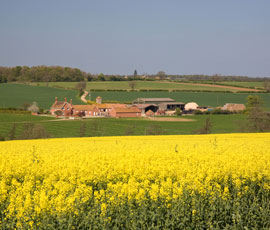‘Agricultural entrepreneurs in short supply’, Oxford Farming Conference told

Agriculture needs to move from traditional farm-to-fork to knowledge-based production, the CEO of a global farming group told the Oxford Farming conference.
Hans Henrik Koefoed runs Danish-based Ingleby Farms and Forests, which manages 100,000ha of family farms in Argentina, Australia, New Zealand, Peru, Romania, USA and Uruguay.
Global trends like food shortages, water scarcity and soil erosion required a new approach from entrepreneurial farmers with high levels of knowledge, sharing ideas and technology, he said.
“There is a lack of leadership and hands-on technically skilled farmers with an international outlook, farmers able to transform knowledge into sustainable, long-term production,” he said.
“We are looking for true agricultural entrepreneurs – these people are the core heart and soul of our business.”
Mr Koefoed said attracting the best young farmers was essential for his business and for meeting the world’s challenges.
To do this, entrepreneurial farmers needed to carve out a long-overdue share of margins squeezed by demanding consumers and multinational suppliers, he said.
“We need to make farming much more financially sound to attract the next generation of farmers.”
“We cannot attract the really skilled young people if they do not see a financial future in farming as they do in London or in Zurich.”
Ingleby Farms and Forests employs more than 300 staff on family farms of different types across nine countries.
Despite this global spread, Mr Koefoed said he had developed a friendly and environmentally sustainable farming network.
He said that bonus systems and the word “corporate” were banned, while the different farming families tried to meet up each year.
The business has also created a green bible for its farms, with guidelines on environmental practices.
“We want to provide the best practical and scientific leadership of our organisation, with true respect for the long term prospects of the environment,” he said.
“But you cannot be sustainable if you are not profitable.”
Read more on the Oxford Farming Conference
